Jon Cronshaw's Blog, page 22
July 26, 2024
🧟♂️ Story Progress & Reflecting on Platforms | Author Diary – July 26, 2024 🎉✨
 Progress on “Punks Versus Zombies”:
Progress on “Punks Versus Zombies”:
This week has been productive with the completion of three new episodes of “Punks Versus Zombies.” I am now approaching the final act of the series, a phase filled with anticipation and excitement as I aim to wrap up the story in a satisfying manner. It’s thrilling to see the end in sight, and I’m eager to bring a compelling conclusion to the fans of the series.
 Celebrating 15 Years:
Celebrating 15 Years:
On a personal note, I celebrated my fifteenth wedding anniversary with my wife. It’s a significant milestone, and we took some time to appreciate the journey we’ve shared together, reflecting on the memories and looking forward to many more years.
 Considering Platform Changes:
Considering Platform Changes:
I also discuss my current concerns with the Ream platform. Despite enjoying the experience Ream offers to readers, recent issues with its senior management have raised doubts about the platform’s long-term viability. These developments have led me to consider switching to Patreon, a platform known for its stability and strong creator-supportive community. For now, I will continue to post on Ream as usual, but I am exploring all options to ensure the best experience for my readers and a sustainable model for my content.
As always, I appreciate your support and interest in my work and personal updates. I’d love to hear your thoughts on approaching the end of a long-term project, celebrating personal milestones, or navigating changes with content platforms. Don’t forget to like, share, and subscribe for more insights into my author’s life and the decisions that shape it.
The post 🧟♂️ Story Progress & Reflecting on Platforms | Author Diary – July 26, 2024 🎉✨ first appeared on Jon Cronshaw.
July 18, 2024
Lessons for Fantasy Writers from Dostoevsky’s Crime and Punishment
Fyodor Dostoevsky’s “Crime and Punishment” is a towering masterpiece of literature.
While it might seem an unconventional choice for fantasy writers, the novel’s exploration of complex themes and its intense focus on character development offer valuable lessons for crafting compelling fantasy narratives that resonate with readers on multiple levels.
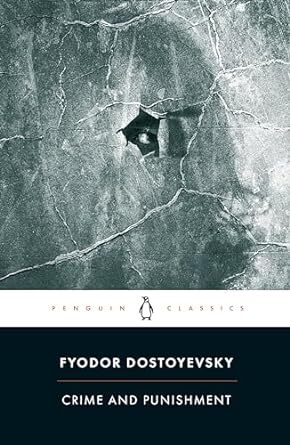 Examining Moral Ambiguities
Examining Moral AmbiguitiesAt the heart of “Crime and Punishment” is the story of Raskolnikov.
He is a former student who believes himself above the law and capable of committing a crime for a greater good.
The novel painstakingly explores the moral and psychological repercussions of his actions, providing an in-depth examination of the grey areas of morality.
Lesson: Fantasy writers can similarly challenge their characters with moral dilemmas that test their beliefs and values.
By placing characters in situations where the right choice is not clear-cut, or where the decision could have profound personal and societal repercussions, writers can add depth to their narratives.
This engages readers in complex ethical questions.
The Importance of Setting as CharacterDostoevsky’s St. Petersburg is almost a character in its own right.
It reflects Raskolnikov’s turmoil and the societal conditions that influence his actions.
The oppressive atmosphere of the city, with its stifling heat and cramped, maze-like streets, mirrors the protagonist’s mental state.
It serves as a constant reminder of his isolation and paranoia.
Lesson: In fantasy writing, the setting should do more than just provide a backdrop for action.
It should actively reflect and enhance the themes and emotions of the narrative.
Whether it’s a sprawling city or a secluded magical forest, the environment can be used to mirror the internal conflicts of characters and to heighten the narrative tension.
The Psychological Complexity of CharactersDostoevsky is a master of psychological realism.
“Crime and Punishment” is a profound exploration of the human psyche.
Raskolnikov’s complex motives, his fluctuating mental state, and his interactions with other characters provide a rich study of human psychology.
Lesson: Fantasy authors should strive to create characters with similar psychological complexity.
Characters should have clear motivations, fears, and desires that drive their actions and interactions.
This depth makes characters more relatable and their journeys more compelling, thereby enhancing the reader’s investment in the story.
Use of Foil Characters“Crime and Punishment” features several characters that act as foils to Raskolnikov.
This includes the saintly Sonya, whose compassion contrasts sharply with his nihilism.
These characters highlight different facets of the protagonist’s personality.
They help explore the novel’s themes from various angles.
Lesson: Fantasy authors can effectively use foil characters to highlight and contrast the central themes of their stories.
By creating characters that embody opposing traits or ideologies, writers can explore the central conflicts of their narrative more fully and add layers of meaning to their work.
The Role of Dialogue in Unveiling ThemesMuch of the philosophical and ethical exploration in “Crime and Punishment” occurs through dialogue.
This allows characters to voice different viewpoints and clash over key issues.
This interaction is crucial for unpacking the novel’s complex themes.
Lesson: Effective use of dialogue in fantasy can serve a similar purpose.
Rather than relying on narrative exposition, authors can use conversations to reveal character motivations, build the world, and address the story’s deeper themes.
Dialogue can be a dynamic tool for advancing the plot while also fleshing out the philosophical and moral underpinnings of the story.
Beyond the Fantasy Genre“Crime and Punishment” provides a blueprint for how deep psychological insight and moral complexity can elevate a narrative.
Fantasy writers looking to enrich their stories can draw from Dostoevsky’s approach to create novels that are not only engaging and imaginative but also profoundly resonant.
By integrating these lessons into their work, fantasy authors can craft stories that captivate the mind and stir the soul, much like Dostoevsky’s enduring classic.
read more tips for writers.The post Lessons for Fantasy Writers from Dostoevsky’s Crime and Punishment first appeared on Jon Cronshaw.
July 17, 2024
Top 10 Underrated Epic Fantasy Novels You Need to Read
Epic fantasy often brings to mind the titans of the genre: Tolkien, Martin, and Sanderson.
However, there exists a treasure trove of lesser-known gems that deserve your attention.
Here are ten underrated epic fantasy novels and series that you absolutely need to read.
Chronicles of Prydain by Lloyd Alexander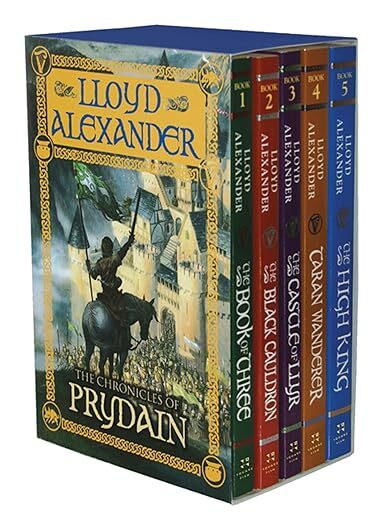
Move over, Middle-earth. Lloyd Alexander’s Prydain series offers a rich tapestry of Welsh mythology, endearing characters, and a journey of self-discovery.
Follow Taran, an assistant pig-keeper turned hero, as he navigates a world brimming with magic and danger.
It’s like “The Lord of the Rings” but with more farm animals and fewer hobbits.
get your copy.The Forgotten Beasts of Eld by Patricia McKillip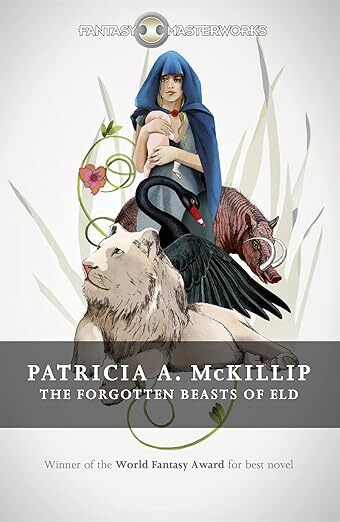
Patricia McKillip weaves a lyrical tale of a reclusive sorceress and her menagerie of magical beasts.
“The Forgotten Beasts of Eld” is a standalone novel that packs the punch of an entire series.
Expect profound themes, enchanting prose, and a storyline that doesn’t require a flowchart to follow.
get your copy.The Divine Cities by Robert Jackson Bennett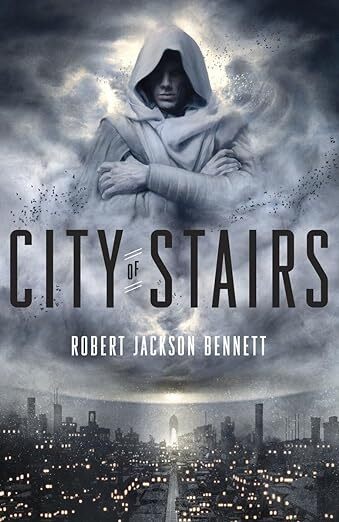
In “The Divine Cities” trilogy, Robert Jackson Bennett delivers a masterclass in world-building and political intrigue.
The cities once ruled by gods are now in the hands of mortals, leading to chaos and conflict.
This series mixes noir detective vibes with divine shenanigans.
It’s like “Blade Runner” meets “The Iliad,” but better.
get your copy.Gene Wolfe’s Book of the New Sun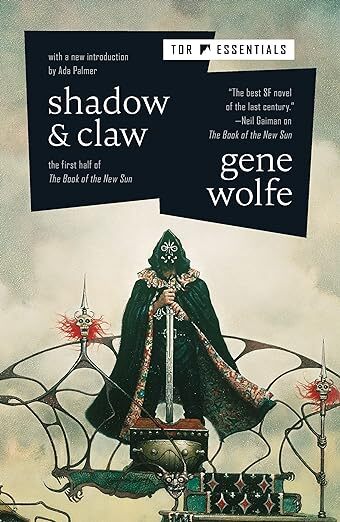
Gene Wolfe’s “Book of the New Sun” is an intricate, mind-bending journey through the life of Severian, a torturer with a conscience.
This series is a dense, philosophical read that makes “War and Peace” look like a children’s book.
If you enjoy puzzles wrapped in enigmas, this one’s for you.
get your copy.The Mageborn Series by Michael G. Manning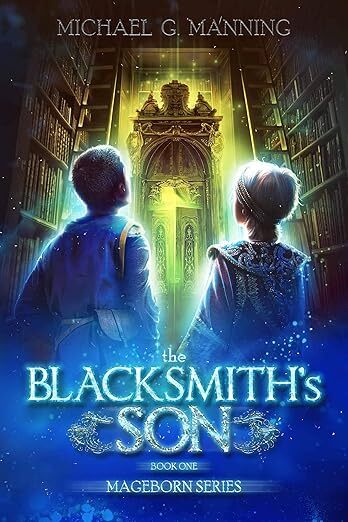
Michael G. Manning’s “Mageborn” series is the underdog story of Mordecai, a commoner who discovers his magical heritage.
It’s a refreshing take on the chosen one trope, with plenty of wit, charm, and epic battles.
Think “Harry Potter” meets “Game of Thrones,” without the annoying teen angst.
get your copy.Initiate Brother Duology by Sean Russell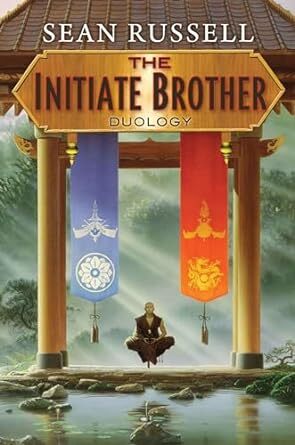
Sean Russell’s “Initiate Brother” duology transports you to a fantastical version of feudal Japan.
It’s a world of political intrigue, spiritual mysticism, and philosophical depth.
The duology combines the elegance of “Memoirs of a Geisha” with the brutality of “Shogun.”
It’s a samurai sword fight with added metaphysical contemplation.
get your copy.Deryni Chronology by Katherine Kurtz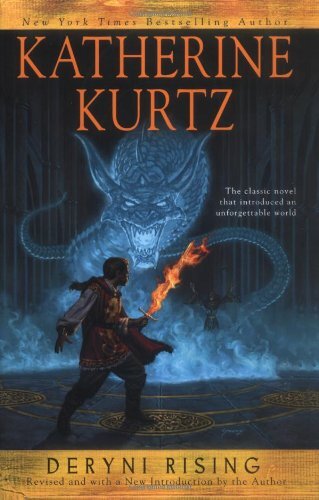
Katherine Kurtz’s “Deryni Chronology” series is a pioneer of the historical fantasy genre.
Set in a medieval world where magic and politics intertwine, the Deryni books offer a rich, character-driven narrative.
It’s “The Tudors” with spellcasting and fewer beheadings.
get your copy.Saga of the Pliocene Exile by Julian May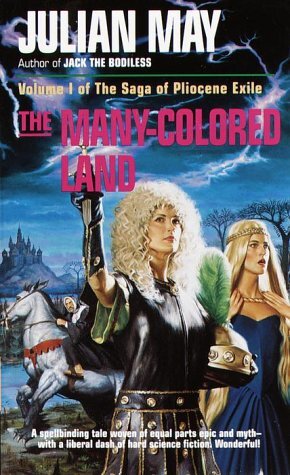
Julian May’s “Saga of the Pliocene Exile” is a genre-bending masterpiece that mixes science fiction with fantasy.
Time-traveling misfits find themselves in a prehistoric Earth ruled by aliens with godlike powers.
It’s like “Doctor Who” met “The Silmarillion” at a wild party and decided to write a novel together.
get your copy.Deathstalker Series by Simon R. Green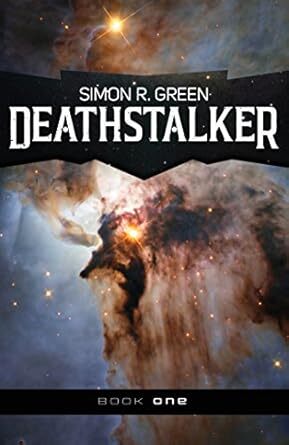
Simon R. Green’s “Deathstalker” series is a space opera on steroids.
It follows Owen Deathstalker as he battles an evil empire with a ragtag band of misfits.
The series combines elements of fantasy, sci-fi, and horror into a whirlwind of non-stop action.
It’s “Star Wars” if George Lucas had a darker sense of humour and no restraint.
get your copy.The Death Gate Cycle by Margaret Weis and Tracy Hickman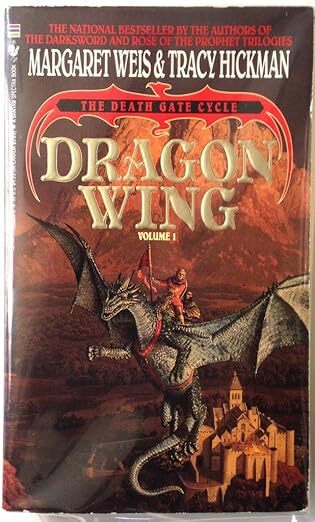
Margaret Weis and Tracy Hickman’s “The Death Gate Cycle” takes place in a universe shattered into multiple realms, each with its own unique magic system.
The series explores themes of prejudice, power, and redemption.
It’s “The Chronicles of Narnia” for adults, with more existential dread and fewer talking animals.
get your copy.These ten underrated epic fantasy series prove that there’s more to the genre than the usual suspects.
Each series offers a unique world, compelling characters, and storytelling that rivals the giants of fantasy.
So, if you’re tired of waiting for winter to come or for Kvothe to finally open those damn doors, give these hidden gems a try.
The post Top 10 Underrated Epic Fantasy Novels You Need to Read first appeared on Jon Cronshaw.
July 15, 2024
The Impact of The Prince of Thorns on Fantasy Literature
When Mark Lawrence unleashed “The Prince of Thorns” upon the unsuspecting world, it was like dropping a ravenous wolf into a pen of fluffy sheep.
Fantasy literature would never be the same.
In a genre often adorned with noble quests and honourable heroes, Lawrence’s grimdark tale stormed in with blood, vengeance, and a protagonist who makes Joffrey Baratheon look like a choirboy.
Let’s take a look at how “The Prince of Thorns” has left its mark on the fantasy genre.
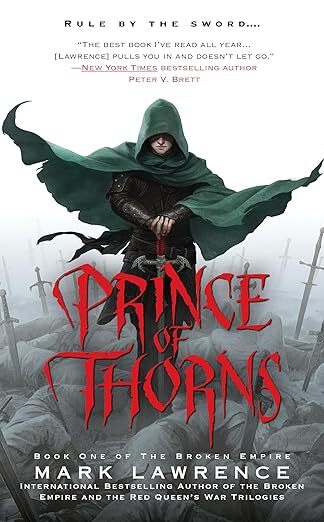 A Thorn in the Side of Traditional Fantasy
A Thorn in the Side of Traditional Fantasy“The Prince of Thorns” introduced us to Jorg Ancrath, a charming young lad whose hobbies include murder, arson, and generally being the worst dinner guest imaginable.
Forget your chivalrous knights and gallant princes—Jorg is the poster child for ‘How to Win Friends and Influence People’ in a post-apocalyptic wasteland.
Lawrence didn’t just break the mould; he smashed it with a war hammer and then set it on fire for good measure.
This book is a refreshing antidote to the saccharine tales of virtue that had been multiplying like rabbits on fertility drugs.
A Protagonist to Die For…LiterallyJorg Ancrath is a character you wouldn’t want to meet in a dark alley—or a well-lit one, for that matter.
He’s not your average anti-hero; he’s the guy who makes anti-heroes question their life choices.
With a backstory darker than a black hole’s basement, Jorg’s rise to power is paved with corpses, betrayal, and the kind of moral ambiguity that would make Machiavelli proud.
In the grand tradition of rooting for the bad guy, Lawrence has given us a protagonist who is unapologetically ruthless.
And let’s be honest, it’s a breath of fresh air—or perhaps more accurately, a gust of acrid smoke from a burning village.
Grimdark: The New Black“The Prince of Thorns” is a cornerstone of the grimdark subgenre, where hope goes to die and the only light at the end of the tunnel is the flicker of a flaming sword.
Lawrence’s writing revels in the gritty and the grim, painting a world where life is cheap and death is often a relief.
This bleak yet captivating style has influenced a new wave of fantasy authors who have embraced the darker side of storytelling.
If you’ve ever read a book where the hero’s greatest triumph is simply not getting disembowelled, you’ve got Mark Lawrence to thank.
The Ripple EffectLawrence’s success with “The Prince of Thorns” has opened the floodgates for more complex, morally grey characters in fantasy literature.
Publishers, previously wary of anything less wholesome than a Disney princess, suddenly found themselves inundated with tales of treachery, bloodshed, and protagonists who’d sooner stab you in the back than pat you on it.
Aspiring writers, inspired by Lawrence’s audacity, have ventured into darker territories, crafting stories where the line between good and evil is not just blurred but utterly obliterated.
It’s a beautiful, bloody mess, and we wouldn’t have it any other way.
The Legacy of LawrenceMark Lawrence has carved out a niche in the fantasy genre that’s as jagged and treacherous as Jorg’s path to power.
“The Prince of Thorns” stands as a testament to the power of unconventional storytelling and the appeal of characters who are more likely to steal your wallet than save your life.
So, whether you revel in the darkness or simply enjoy watching the world burn from a safe distance, “The Prince of Thorns” has left an indelible mark on fantasy literature.
It reminds us that sometimes, the best stories are those that drag us through the mud and leave us gasping for breath—and maybe a stiff drink.
So, here’s to Mark Lawrence, the dark prince of grimdark, and his unforgettable contribution to the world of fantasy.
Long may his reign of literary terror continue.
get your copy.The post The Impact of The Prince of Thorns on Fantasy Literature first appeared on Jon Cronshaw.
July 12, 2024
🎧 Audio Edits & Integrating Narratives | Author Diary – July 12, 2024 📚🎤
 Audio Pass for “The Knight and the Rebel”:
Audio Pass for “The Knight and the Rebel”:
This week involved a detailed audio pass of “The Knight and the Rebel,” where I listened to the manuscript through text-to-speech technology. This method is incredibly helpful for spotting plot inconsistencies, repetitive word usage, and other textual nuances that might be missed during regular editing. It’s a crucial step in ensuring the narrative flows smoothly and cohesively.
 Weaving Together POVs:
Weaving Together POVs:
Another major task was integrating the two distinct POVs into a single, seamless narrative. This process enhances the storytelling by ensuring the perspectives complement each other and build upon the overarching plot, adding depth and intrigue to the entire story.
 Reading Journey:
Reading Journey:
I continued my reading adventure with Maria V. Snyder’s works, finishing both “Magic Study” and “Fire Study.” Her captivating style and compelling character developments offer both inspiration and a delightful escape into her fictional worlds.
 Glastonbury Catch-Up:
Glastonbury Catch-Up:
My enjoyment of this year’s Glastonbury festival performances extended into this week, with standout acts from Bombay Bicycle Club, Confidence Man, and Bloc Party. Each group brought their unique energy and creativity to the stage, providing a fantastic backdrop to my week’s work.
As I wrap up another productive week of editing, reading, and enjoying vibrant music, I look forward to the next stages of preparation for my book’s release and the ongoing enjoyment of great performances.
Feel free to share your experiences with audio editing, your thoughts on Maria V. Snyder’s books, or your favorite acts from Glastonbury this year. Don’t forget to like, share, and subscribe for more insights into my author’s life and creative journey!
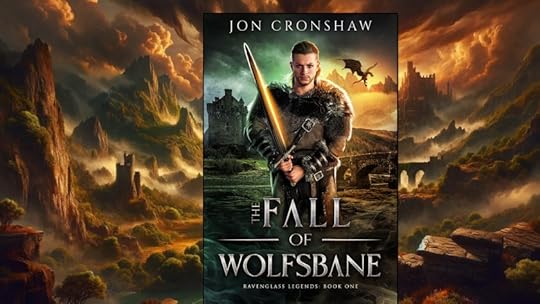
The post 🎧 Audio Edits & Integrating Narratives | Author Diary – July 12, 2024 📚🎤 first appeared on Jon Cronshaw.
July 11, 2024
What Fantasy Authors Can Learn from “Cowboy Bebop”
“Cowboy Bebop,” the iconic anime series known for its stylish blend of sci-fi and noir elements, isn’t just a revolutionary addition to anime culture.
It’s a masterclass in storytelling, character development, and atmospheric world-building.
While at first glance it may seem distant from the realms of fantasy, the series offers a wealth of inspiration for fantasy authors looking to inject freshness and depth into their narratives.
Genre Blending MasteryAt its core, “Cowboy Bebop” is a seamless blend of genres.
Jazz, western, sci-fi, and noir meld together to create a universe that is both timeless and distinctly original.
This amalgamation not only sets the series apart but also enriches every aspect of its storytelling.
Fantasy writers can take a cue from “Cowboy Bebop” by experimenting with genre blending in their own works.
Imagine a high fantasy world with steampunk technology, or a magical realm influenced by film noir.
Mixing unexpected genres can create a rich tapestry that intrigues readers and broadens the scope of traditional fantasy settings.
Creating Iconic CharactersThe characters of “Cowboy Bebop,” from the aloof and mysterious Spike Spiegel to the pragmatic Jet Black, are deeply nuanced and endlessly fascinating.
Each character has a distinct background and personality that inform their motivations and relationships, making them memorable and relatable.
Fantasy authors can learn from this by developing characters with complex pasts and diverse motivations.
Characters should be shaped by their experiences and the world around them, making their actions and growth throughout the story more compelling and believable.
Atmospheric World-Building“Cowboy Bebop” excels in creating mood and atmosphere.
Each location in the Bebop universe, from the gritty alleys of Mars to the eerie solitude of space, is infused with a sense of mood that enhances the narrative.
The use of music, lighting, and detailed backgrounds contributes to a world that feels lived-in and real.
Fantasy authors can draw inspiration from this approach by focusing on the sensory details of their worlds.
How does the air smell in a bustling market square?
What sounds echo through a haunted forest?
Crafting a vivid sensory experience can deeply immerse readers in the world, making it a character in its own right.
Embracing Episodic StorytellingWhile there is an overarching narrative, “Cowboy Bebop” is largely episodic, with each episode (or “session”) exploring a self-contained story.
This structure allows for rich character development and a variety of tones and themes, from tragic to comedic, without losing sight of the larger story arc.
Fantasy authors might explore episodic storytelling within larger narratives.
This can be particularly effective in series, where each book or section might focus on a different aspect of the world or a side character’s backstory, adding layers and texture to the overall plot.
The Art of SubtletyPerhaps one of the most striking lessons from “Cowboy Bebop” is the power of subtlety.
The series often leaves much unsaid, allowing viewers to infer depth and emotions from the characters’ actions and interactions.
This understated storytelling can be more impactful than explicit exposition.
Fantasy writers can employ this technique by trusting their readers to piece together aspects of the world and characters through hints and implications rather than overt explanations.
This not only respects the intelligence of the reader but also makes the narrative more engaging and thought-provoking.
“Cowboy Bebop” stands as a testament to the power of creative storytelling and artistic ambition.
By incorporating lessons from this genre-defying series, fantasy authors can enhance their craft and create worlds and stories that resonate with sophistication, depth, and innovation.
Just as the crew of the Bebop navigates the stars, fantasy writers can navigate the boundless possibilities of their imagination to craft truly unforgettable tales.
The post What Fantasy Authors Can Learn from “Cowboy Bebop” first appeared on Jon Cronshaw.
July 10, 2024
The Best Fantasy Series That Will Probably Never Get Finished
In the vast and magical world of fantasy literature, there are a few epic series that have captured our hearts, only to leave us languishing in uncertainty.
We eagerly await the next instalment, but deep down, we know it may never come.
Among these tantalizing yet tormenting series are George R.R. Martin’s “A Song of Ice and Fire,” Patrick Rothfuss’s “The Kingkiller Chronicle,” and Scott Lynch’s “Gentleman Bastard Sequence.”
As fans, we walk a tightrope between our desperate need for closure and our understanding of the creative process.
Let’s explore this conundrum with a touch of that signature dark fantasy wit.
A Song of Ice and Fire by George R.R. MartinGeorge R.R. Martin’s magnum opus, “A Song of Ice and Fire,” has redefined epic fantasy with its intricate plots, morally grey characters, and a willingness to kill off anyone who gets too comfortable.
Five books in, and we’re still waiting for the promised “Winds of Winter” and “A Dream of Spring.”
Martin’s pace has left fans with enough time to knit entire wardrobes of direwolf sweaters while speculating endlessly on who will finally sit on the Iron Throne—assuming it hasn’t rusted away by then.
There’s a toxic fandom that demands more books with the fervour of a White Walker army marching south.
But let’s pause and think about this: Martin started this series in 1996.
That’s right, the Spice Girls were still topping the charts when he began this saga.
Maybe, just maybe, Martin wants to write about something other than dragons and incest for a change.
The Kingkiller Chronicle by Patrick RothfussPatrick Rothfuss introduced us to the gifted and enigmatic Kvothe in “The Name of the Wind,” followed by “The Wise Man’s Fear.”
Both books showcased Rothfuss’s lyrical prose and complex world-building, leaving readers craving the final volume, “The Doors of Stone.”
However, Kvothe’s tale remains incomplete, much like our understanding of how long it actually takes to tell a good story.
It’s said that good things come to those who wait, but at this rate, we’ll all be wise old men by the time we get our answers.
Rothfuss, much like Martin, has faced the ire of a fandom that oscillates between adoration and outright hostility.
It’s as if fans expect him to chain himself to his desk until he churns out the final volume.
However, writing is not a mechanical process, and inspiration isn’t something that can be summoned at will, unlike a demon from the University’s Archives.
We forget that Rothfuss, like all artists, needs time to breathe, to live, and occasionally to eat something other than fan mail.
The Gentleman Bastard Sequence by Scott LynchScott Lynch’s “Gentleman Bastard Sequence” began with the audacious and charming “The Lies of Locke Lamora,” followed by “Red Seas Under Red Skies” and “The Republic of Thieves.”
The series, detailing the exploits of master thief Locke Lamora, combines swashbuckling adventure with intricate cons and schemes.
However, Lynch’s fourth book, “The Thorn of Emberlain,” has been eagerly anticipated for years.
Readers are left plotting their own heists to get their hands on the next instalment, hoping Locke’s luck hasn’t run out just yet.
Lynch has been open about his personal struggles, and while some fans have shown understanding, others have wielded their impatience like a cudgel.
There’s a bizarre expectation that authors should be machines, cranking out books on demand, regardless of the toll on their mental and physical health.
Lynch’s characters, especially the resilient Locke Lamora, are beloved not just for their cleverness, but for their flaws and vulnerabilities.
Perhaps it’s time for fans to show a little of that same empathy towards the author himself.
The Push and Pull of Expectation and EmpathyThere’s an undeniable push and pull between the desire for authors to deliver on their promises and the need to empathise with their journey.
As fans, we’ve invested time, emotion, and sometimes a small fortune into these series.
We yearn for closure, for the final piece of the puzzle.
Yet, it’s crucial to remember that authors are not our personal story vending machines.
They are individuals with lives, dreams, and struggles of their own.
So, while it’s easy to join the chorus of demands for the next book, let’s take a step back and consider the human behind the words.
George R.R. Martin, Patrick Rothfuss, and Scott Lynch have given us worlds of wonder and characters we love.
They deserve our patience and our respect.
So, let’s hold onto hope, but also hold onto our humanity.
After all, isn’t that what these epic tales are really about?
Out now: The Fall of Wolfsbane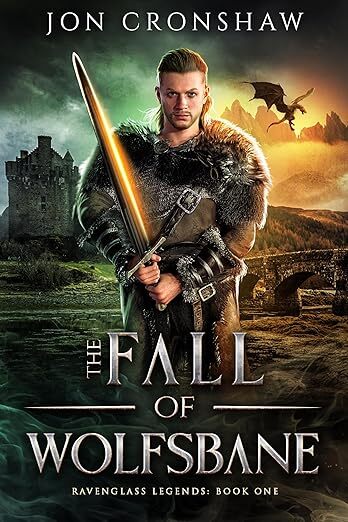
When the Ostreich Empire shatters his world and enslaves his people, Ragnar Wolfsbane vows to fight back.
Thrust into a dangerous game of imperial intrigue, Ragnar must learn to navigate a world of forbidden magic and hidden agendas.
But as the true power of ravenglass emerges, Ragnar’s choices could lead to salvation or ruin for those he holds dear.
Immerse yourself in a vivid fantasy realm where the lines between hero and villain blur.
Will Ragnar rise to become the leader his clan needs, or will the Empire’s machinations crush his resolve?
Find out in The Fall of Wolfsbane, a character-driven high fantasy novel, perfect for fans of Vikings and The Last Kingdom.
The post The Best Fantasy Series That Will Probably Never Get Finished first appeared on Jon Cronshaw.
July 8, 2024
Eragon’s Enduring Impact on Fantasy Fiction and Aspiring Writers
When Christopher Paolini released “Eragon,” few could have predicted the seismic shift it would cause in the fantasy genre.
What began as a homeschooled teenager’s project turned into a dragon-powered juggernaut, mercilessly clawing its way into the hearts of millions.
Let’s take a sardonic look at how a farm boy and his dragon left an indelible mark on fantasy literature.
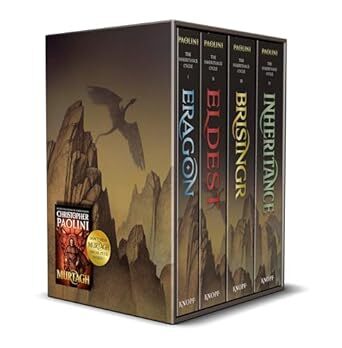 A Teenager and His Word Processor
A Teenager and His Word ProcessorIn 2002, Paolini, then a 15-year-old, decided he had read enough Tolkien to give the world his own interpretation of Middle-earth.
Armed with a thesaurus and the boundless ambition of youth, he embarked on crafting “Eragon.”
Critics might argue that Paolini’s youth is evident in his writing, but let’s not kid ourselves—if given the chance, who wouldn’t want to publish a bestselling novel before learning to drive?
Dragons: The Ultimate Fantasy AccessoryEragon reintroduced dragons as the ultimate fantasy accessory, much like mobile phones for teenagers.
Before “Eragon,” dragons were formidable, fearsome, and somewhat rare.
After “Eragon,” every budding fantasy writer thought, “If Paolini can do it, so can I!” and thus began the draconic population boom in literature.
We now have more dragons than you can shake a magic staff at.
Plot Twists and Familiar TerritoryLet’s not ignore the elephant—or rather, the dragon—in the room: “Eragon” borrows heavily from established fantasy tropes.
Farm boy discovers he’s special?
Check.
Mysterious mentor?
Check.
Evil overlord?
Triple check.
While some might call it derivative, others—probably sitting on dragon-shaped piles of money—call it a homage.
Besides, originality is overrated, especially when you can just rearrange the furniture in Tolkien’s living room and call it your own.
Impact on Aspiring WritersPaolini’s success was a beacon of hope to countless aspiring writers.
His journey from self-publishing to international acclaim whispered sweet nothings into the ears of many: “You, too, can be a published author.”
This led to a surge in fantasy novels hitting the market, each trying to capture the same lightning in a bottle.
It was like watching a medieval version of the X Factor, but with more sword fights and fewer power ballads.
The Legacy of Eragon“Eragon” has undeniably left its mark on the fantasy genre.
It brought dragons back into vogue, inspired a new generation of writers, and taught us that sometimes, just sometimes, a teenager with a dream and a penchant for purple prose can conquer the literary world.
If you ever find yourself rolling your eyes at yet another “chosen one” narrative, remember—you have Eragon to thank for it.
So, whether you love it, hate it, or love to hate it, “Eragon” has etched itself into the annals of fantasy literature.
It serves as a reminder that dragons, much like literary success, can come from the most unexpected places.
So next time you see a young writer hunched over their laptop, churning out the next big fantasy epic, give them a nod.
They might just be the next Paolini—armed with a thesaurus and a dragon-sized dream.
get your copy.The post Eragon’s Enduring Impact on Fantasy Fiction and Aspiring Writers first appeared on Jon Cronshaw.
July 5, 2024
🎉 Draft Completion & Cultural Immersion | Author Diary – July 5, 2024📚
 Finishing “The Knight and the Rebel”:
Finishing “The Knight and the Rebel”:
I’m thrilled to share that I’ve completed the draft of “The Knight and the Rebel,” book 3 in the Ravenglass Legends series. Reaching the end of a draft is always a significant moment, filled with a mix of relief and excitement as I begin to look ahead to the editing phase and eventually sharing this story with you all.
 Reading “Poison Study” by Maria V. Snyder:
Reading “Poison Study” by Maria V. Snyder:
This week, I enjoyed delving into Maria V. Snyder’s “Poison Study,” an engaging and beautifully crafted novel that captivates from the first page. It’s always refreshing to get lost in such a well-written story, and it’s provided some wonderful inspiration.
 Glastonbury Highlights:
Glastonbury Highlights:
Catching up on this year’s Glastonbury festival has been a delight. I especially enjoyed performances by Alvvays, LCD Soundsystem, James Blake, PJ Harvey, and James. Each artist brought their unique style to the stage, making for an eclectic and enjoyable musical experience.
As I transition from writing to revising “The Knight and the Rebel,” and reflecting on the creative energies from Glastonbury and “Poison Study,” I am reminded of the vibrant and diverse world of art and expression. I’m eager to bring these influences into my future work.
Feel free to share your recent creative milestones, thoughts on “Poison Study,” or your favorite performances from Glastonbury. Don’t forget to like, share, and subscribe for more insights into my author’s life and the ongoing journey through storytelling!
The post 🎉 Draft Completion & Cultural Immersion | Author Diary – July 5, 2024📚 first appeared on Jon Cronshaw.
July 4, 2024
Fantasy Writing Lessons from the 1997 UK General Election
In the realm of fantasy literature, where epic tales and mythical lands reign, the real-world political drama of the 1997 UK General Election might seem an unlikely source of inspiration.
However, this pivotal moment in British politics, marked by the end of 18 years of Conservative rule and the rise of Tony Blair’s Labour Party, offers a treasure trove of lessons for fantasy writers.
Let’s venture into the world of political strategy, media campaigns, and public sentiment to explore what fantasy authors can learn from this historic election.
The Power of Change and TransformationThe 1997 election was a significant moment of change in British politics.
For fantasy authors, the theme of transformation – be it in a character, a society, or an entire world – can be a powerful narrative driver.
Crafting stories that capture the momentum of change can resonate deeply with readers.
Complex Characters with Diverse MotivationsPolitical figures are often complex characters, driven by a mix of ideals, ambitions, and personal beliefs.
In fantasy writing, creating characters with similarly diverse motivations adds depth to the narrative and makes for more engaging and believable characters.
Building Tension and AnticipationElections are inherently dramatic, with tension building up to the day of the vote and the eventual results.
Fantasy authors can mirror this tension in their plots, building anticipation towards a significant event or climax, keeping readers hooked.
The Role of Backstory and HistoryThe historical context of the 1997 election – the state of the Conservative Party, Labour’s reinvention, the public’s desire for change – was crucial to its outcome.
In fantasy writing, a well-crafted backstory and historical context can enrich the narrative and provide a deeper understanding of the present story.
The Influence of Media and PerceptionMedia played a significant role in the 1997 election, shaping public perception and opinion.
Fantasy writers can explore the role of ‘media’ within their worlds – be it magical projections, bardic tales, or royal proclamations – and its impact on the story and characters.
The Strategy Behind Decisions and ActionsPolitical campaigns are all about strategy.
Similarly, in fantasy literature, the strategies employed by characters – whether in battles, political intrigue, or personal quests – can add an intriguing layer of complexity to the story.
The Theme of Hope and AspirationThe 1997 election was marked by a sense of hope and aspiration for a new Britain.
In fantasy literature, themes of hope, dreams, and aspirations are powerful, resonating with readers and driving characters to pursue their quests against all odds.
From Political Arenas to Fantasy BattlegroundsThe 1997 UK General Election, with its drama, complex characters, and themes of change and strategy, offers rich lessons for fantasy writers.
By drawing on these real-world political dynamics, authors can craft fantasy narratives that are not only entertaining but also reflective of the complexities and aspirations that drive human societies.
So, fantasy authors, are you ready to cast your ballot for more politically inspired storytelling?
How will the lessons from the 1997 UK election shape the kingdoms and empires in your fantasy worlds?
Share your thoughts, and let’s explore how the art of politics can enrich the craft of fantasy writing.
more writing tips.The post Fantasy Writing Lessons from the 1997 UK General Election first appeared on Jon Cronshaw.



